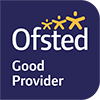SEND - How much support my child will receive?
If your child has an EHC Plan, they will be entitled to a specified bracket (a range of hours) of support during the school day. We will match your child’s needs with support from LSAs trained in that specific area of need. For example:
- We have an LSA trained in emotional literacy (ELSA)
- Two of our LSAs are trained teachers of English as a Second Language
- Two LSAs are qualified in British Sign Language Level 1
- Four LSAs have attended courses in supporting pupils with a hearing impairment
- One has received training in supporting pupils with a visual impairment
- Seven of our LSAs are graduates with degrees ranging from English, History, Education, Sports Studies to Maths and Science.
- A selection of our LSAs have attended courses ranging from ASD strategies, dyspraxia awareness, dyslexia awareness, attachment disorder and management of language & communication difficulties in secondary school.
- One of our LSAs is fluent in French and Spanish, another is a native speaker of Nepali, one is a native speaker of Romanian and another Urdu.
- One of our LSAs is trained in ARTiculate Art therapy
- One of our LSAs is trained in ELKAN supporting communication and language difficulties.
- One of our LSAs is trained in the Cognitive Behavioural Approach
- Six of our LSAs are trained in Thinking Reading
- Two of our LSAs are trained in Catch Up Numeracy
- Two of our LSAs are trained in Catch Up Literacy
If your child has special educational needs but does not have an EHC Plan, we attempt to match the amount and type of support to the level of need. A number of factors are considered including:
- Levels of attainment and well-being compared to peers
- Progress in response to whole-school and SEND interventions
- Advice received from external agencies
- Views of subject teachers, your child and you, and the parents/carers
We will produce an additional support plan in the form of a One Page Profile if your child needs targeted intervention or additional support in class. This will detail the provision and expected outcomes. Any contribution that you as parents/carers can make to support your child is also recorded.
The impact of your child’s additional support will be evaluated at the end of an agreed period and outcomes are used to inform the nature of any future support.
Your child will receive support from the most appropriate LSA with skills in that specific area of need. Types of support offered will range from:
- Short-term withdrawal from classes for intense Maths or English support.
- For those who have speech and language difficulties, we invite specialist teachers to provide guidance and training programmes that can be delivered in the school.
- Some pupils who struggle with social interactions are invited to participate in a group where various scenarios are discussed. This may be learning skills such as listening, how to initiate a conversation, how to be part of a group, respect for others and themselves and understanding how to take turns.
- Other pupils have physical problems that require additional help in classrooms, moving around school and during P.E. lessons. Training and regular meetings with specialist staff assist the LSAs to maintain the correct treatment for the pupils is provided.
- We will make reasonable adaptations to allow all our pupils to access the full curriculum, for example, providing worksheets with enlarged print for visually impaired pupils, provision of radio aids for pupils with a hearing impairment, worksheets photocopied on to coloured paper and accessible classrooms for those with a long-term physical difficulty.
We can apply for special access arrangements for your child when he/she completes external examinations (GCSEs). Special arrangements may be requested according to set criteria and requests are made to the Joint Council for Qualifications. On agreement from the Council, your child may be permitted to:
- Use a laptop to complete their written examination
- Have up to 25% extra time to complete the examination
- Have a scribe and / or a reader or use of a Reading Pen
- Have practical assistance (e.g. in practical assessments like textiles or cooking)
- Have rest periods
- Use a native language dictionary
| Previous Question | Return to SEND Home Page | Next Question |

